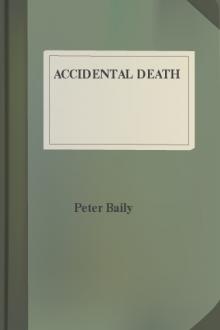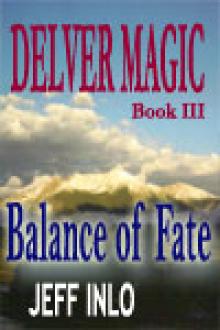Eco: Foucalt's Pendulum by eco foucault (important books to read .txt) 📗

- Author: eco foucault
Book online «Eco: Foucalt's Pendulum by eco foucault (important books to read .txt) 📗». Author eco foucault
There was tensionbetween the Garibaldini and the Badogli-ani. It was said that onthe evening of the battle the Badogliani had flung themselves atthe enemy, shouting "Forward, Savoy!" Well, but that was out ofhabit, some said. What else could you shout when you attacked? Itdidn't necessarily mean they were monarchists; they, too, knew thatthe king had grave things to answer for. The Garibaldini sneered:You could cry Savoy if you attacked with fixed bayonets in the openfield, but not darting around a corner with a Sten. The fact was,the Badogliani had sold out to the British.
The two forces arrived,nevertheless, at a modus vivendi; a joint command under one headwas needed for the assault on the city. The choice fell on Mongo;he led the best-equipped brigade, was the oldest, had fought in theFirst World War, was a hero, and enjoyed the trust of the Alliedcommand.
In the days thatfollowed, sometime before the Milan insurrection, I believe, theyset out to take the city. Good news arrived: the operation hadsucceeded, the brigades were returning victorious to ***. There hadbeen some casualties, however. Rumor had it that Ras had fallen inbattle, and Mongo was wounded.
Then one afternoon thesound of vehicles was heard, songs of victory, and people rushedinto the main square. From the highway the first units werearriving, clenched fists upraised, flags and weapons brandishedfrom the windows of the cars and the running boards of the trucks.The men had already been strewn with flowers along theway.
Suddenly some peopleshouted, "Ras, Ras!" and Ras was there, seated on the front fenderof a Dodge, his beard tangled and his sweaty, black, hairy chestvisible through his open shirt. He waved to the crowd,laughing.
Beside Ras, Rampini alsoclimbed down from the Dodge. He was a nearsighted boy who played inthe band, a little older than the others; he had disappeared threemonths earlier, and it was said he'd joined the partisans. Andthere he was, with a red kerchief around his neck, a khaki tunic, apair of blue trousers¡X the uniform of Don Tico's band¡Xbut now hehad a big belt with a holster and a pistol. Through the thickeyeglasses that had earned him so much teasing from his oldcompanions at the parish hall, he now looked at the girls whocrowded around him, as if he were Flash Gordon. Jacopo askedhimself if Cecilia was there, among the people.
In half an hour thewhole square was full of colorful partisans, and the people calledin loud voices for Mongo; they wanted a speech.
On a balcony of the townhall, Mongo appeared, leaning on his crutch, pale, and with onehand he tried to calm the crowd. Jacopo waited for the speech,because his whole childhood, like that of others his age, had beenmarked by the great historic speeches of il Duce, whose mostsignificant passages were memorized in school. Actually, thestudents memorized whole speeches, because every sentence was asignificant declaration.
Silence. Mongo spoke ina hoarse voice, barely audible. He said: "Citizens, friends. Afterso many painful sacrifices... here we are. Glory to those who havefallen for freedom."
And that was it. He wentback inside.
The crowd yelled, andthe partisans raised their submachine guns, their Stens, theirshotguns, their ¡¥91s, and fired festive volleys. With shell casesfalling on all sides, the kids slipped between the legs of thearmed men and civilians, because they'd never be able to add totheir collections like this again, not with the war looking like itwould end in a month, worst luck.
But there had been somecasualties: two men killed. By a grim coincidence, both were fromSan Davide, a little village above ***, and the families askedpermission to bury the victims in the local cemetery.
The partisan commanddecided that there should be a solemn funeral: companies information, decorated hearses, the village band, the provost of thecathedral¡Xand the parish hall band.
Don Tico acceptedimmediately. Because, he said, he had always harbored anti-Fascistsentiments. And because, as the musicians murmured, for a year hehad been making them practice two funeral marches, and he had tohave them performed sooner or later. Also because, the sharptongues of the village said, he wanted to make up for"Giovinezza."
The "Giovinezza" storywent like this:
Months earlier, beforethe arrival of the partisans, Don Tico's band had gone out for somesaint's feast or other, and they were stopped by the BlackBrigades. "Play ¡¥Giovinezza,' Reverend," the captain ordered,drumming his fingers on the barrel of his submachine gun. Whatcould Don Tico do? He said, "Boys, let's try it; you only have oneskin." He beat time with his pitch pipe, and horrible clatteringcacophony drifted over ***. Only someone desperate to save his skinwould have agreed that the sounds heard were "Giovinezza." Shamefulfor everyone. Shameful for having consented, Don Tico saidafterward, but even more shameful for having played like dogs.Priest he was, and anti-Fascist, but, above all, damn it, he was anartist.
Jacopo had been absenton that day. He had tonsillitis. On the bombardons there were onlyAnnibale Cantalamessa and Pio Bo, and their presence, withoutJacopo, must have made a crucial contribution to the collapse ofNazism-Fascism. But this was not what troubled Belbo, at least atthe time he was writing. He had missed'another opportunity to findout if he would have had the courage to say no. Perhaps that is whyhe died on the gallows of the Pendulum.
The funeral, anyway, wasscheduled for Sunday morning. In the cathedral square everyone waspresent: Mongo with his troops, Uncle Carlo and other municipaldignitaries, with their Great War decorations¡Xand it didn't matterwho had been a Fascist and who had not, it was a question ofhonoring heroes. The clergy were there, the town band in darksuits, and the hearses with the horses decked in trappings ofcream, black, and gold. The Automedon was dressed like one ofNapoleon's marshals, cocked hat, short cape, and great cloak, inthe same colors as





Comments (0)